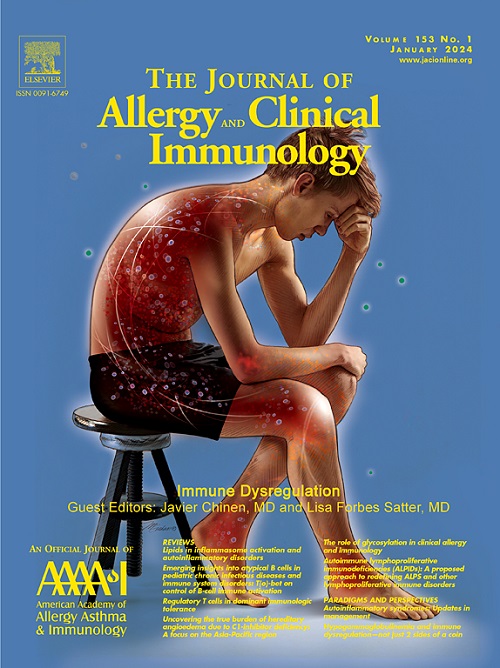利用人工智能治疗免疫缺陷的当前观点和挑战。
IF 11.2
1区 医学
Q1 ALLERGY
引用次数: 0
摘要
人工智能(AI)在医疗保健领域的快速发展有望在严重依赖专业知识的环境中进行筛查和早期诊断,例如先天性免疫错误(IEI)等罕见疾病(rd)。然而,为IEI和其他rd开发人工智能算法面临着重大挑战,如数据集大小、可用性和协调。同样,在现实场景中实施基于人工智能的IEI筛查和诊断策略也受到多种因素的阻碍,包括利益相关者的接受程度、道德和法律约束以及技术障碍。因此,尽管关于早期诊断IEI的基于人工智能的解决方案的文献在不断扩大,但临床应用和广泛实施仍然有限。在这篇综述中,我们提供了最新的综合综述,当前的应用和面临的挑战,人工智能用于IEI诊断和护理。本文章由计算机程序翻译,如有差异,请以英文原文为准。
Current perspectives and challenges of using artificial intelligence in immunodeficiencies
The rapid growth of artificial intelligence (AI) in health care is promising for screening and early diagnosis in settings that heavily rely on professional expertise, such as rare diseases like inborn errors of immunity (IEI). However, the development of AI algorithms for IEI and other rare diseases faces important challenges such as dataset sizes, availability and harmonization. Similarly, the implementation of AI-based strategies for screening and diagnosis of IEI in real-world scenarios is hampered by multiple factors including stakeholders’ acceptance, ethical and legal constraints, and technologic barriers. Consequently, while the body of literature on AI-based solutions for early diagnosis of IEI continues to expand, clinical utility and widespread implementation remain limited. In this review, we provide an up-to-date comprehensive review of current applications and challenges facing AI use for IEI diagnosis and care.
求助全文
通过发布文献求助,成功后即可免费获取论文全文。
去求助
来源期刊
CiteScore
25.90
自引率
7.70%
发文量
1302
审稿时长
38 days
期刊介绍:
The Journal of Allergy and Clinical Immunology is a prestigious publication that features groundbreaking research in the fields of Allergy, Asthma, and Immunology. This influential journal publishes high-impact research papers that explore various topics, including asthma, food allergy, allergic rhinitis, atopic dermatitis, primary immune deficiencies, occupational and environmental allergy, and other allergic and immunologic diseases. The articles not only report on clinical trials and mechanistic studies but also provide insights into novel therapies, underlying mechanisms, and important discoveries that contribute to our understanding of these diseases. By sharing this valuable information, the journal aims to enhance the diagnosis and management of patients in the future.

 求助内容:
求助内容: 应助结果提醒方式:
应助结果提醒方式:


